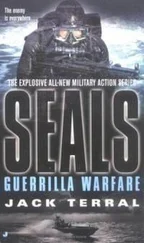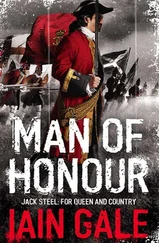The Navy wanted Operation Clickbeetle focused on the USSR, its biggest maritime rival. But when it became clear, after half a dozen voyages, that the Banner was acquiring high-quality intelligence, the National Security Agency began lobbying for the ship’s itinerary to be broadened to include China and North Korea. Navy officials objected, saying that doing so would negate Clickbeetle’s central premise: that American ferrets would be protected by the gentlemen’s agreement between the United States and the Soviet Union that neither would harm the other’s boats for fear of reciprocal action. China and North Korea were bound by no such constraints. They possessed only coast-hugging navies incapable of ranging far enough from shore to eavesdrop on foreign adversaries. Thus they had less to lose by going after American snoopers. But the NSA prevailed in the debate.
Bishop faced his most alarming harassment in December 1966, when six Chinese gunboats surrounded the Banner off Shanghai. Each of the 60-foot patrol boats had a machine gun on its forward deck, manned and pointed at the American ship. The Chinese vessels apparently doubled as fishing boats, since all had lines running from their masts with fish drying on them. Their pilothouses bore the same painted slogan: “Chairman Mao is the envy of our hearts.” Bishop turned and headed back to sea at full speed; the communists trailed along for a while but made no move to stop him.
Lieutenant Commander Charles Clark, another surfaced submariner, succeeded Bishop in 1967. Clark had been friends with Bucher at sub school in the mid-1950s and promised to keep him informed about his experiences on the Banner.
In a series of vivid letters to Bucher while he was in Bremerton, Clark told of furious storms, dangerous icing on his superstructure, and Russian patrol boats coming at him with guns manned and signal flags warning: HEAVE TO OR I WILL FIRE. On Clark’s first trip, to Vladivostok, a Soviet destroyer tailgated him at night, beaming a searchlight into the Banner ’s pilothouse and making Clark feel like he was “on a freeway in a go-cart with a Greyhound bus roaring up” from behind. For several nights in a row, a second destroyer steaming at 30 knots slashed past him with just 50 yards to spare. But, like Bishop, the pipe-smoking Clark had a finely calibrated sense of danger, always wriggling out of bad situations before they spun out of control.
A favorite trick of Clark’s was to act as if he didn’t understand a communist captain’s signal flags. During the summer of 1967, the Banner encountered several Chinese patrol boats in the East China Sea. Though they weren’t communicating with standard international shapes, the Chinese obviously wanted Clark to stop.
“They were flying all kinds of signals that we had reason to believe meant it was going to be serious,” remembered his former executive officer, Dick Fredlund. “They kept signaling us and we kept signaling back, ‘We don’t know what you’re saying’; ‘Would you please repeat that?’; ‘Isn’t it a nice day?’ That kind of stuff.” Clark kept it up until he was safely away from the Chinese.
After the Banner ’s pre-Christmas arrival in Yokosuka, Bucher pumped Clark for more details of his experiences. Clark had tape-recorded some of the confrontations, and Bucher listened to the tension-filled audio in the Banner skipper’s stateroom. Bucher was particularly impressed by one episode in which both of the Banner ’s main engines suddenly quit, leaving the ferret drifting helplessly as Chinese boats circled. A Navy destroyer 400 miles away started toward the Banner , and U.S. jets were alerted in case Clark came under attack. But his engineers managed to get the diesels going again, and the spy ship slipped away.
Interestingly, while the Chinese and Russians always sent out combat ships in an effort to intimidate Clark, the North Koreans hadn’t reacted on the two occasions when the Banner transited their coast.
Clark’s briefings made Bucher think harassment was just part of the game. It’d be nerve-racking but no worse than that. The Pueblo captain was more concerned by Clark’s accounts of erratic radio contact with his home base. Communication nulls caused by atmospheric disturbances were all too common in the Sea of Japan. It had once taken the Banner more than 24 hours to lock on an open circuit—a delay that could spell disaster in an emergency.
Bucher’s preoccupation with his upcoming mission, however, soon gave way to Yuletide merrymaking.
On Christmas Day he and his crew threw a party for some Japanese orphans, complete with cake, ice cream, and Donald Duck cartoons. Quartermaster Charles Law, a burly 26-year-old who’d emerged as a leader among the enlisted men, played Santa Claus to perfection.
A few days later, Bucher organized a spirited “wetting down” party at the Yokosuka officers’ club to celebrate his promotion to full commander, which had come through several months earlier. He invited his men, their wives or girlfriends, officers from every sub in port, and a host of others to join him at the club, gaily decorated for the season in red, green, and gold. With typical flair, Bucher seeded the floor with 300 balloons, forcing guests to weave and trip hilariously among them. The grinning skipper wore yellow trousers, a candy-striped sport coat over a red vest, a bow tie, and a straw boater. A button on his lapel read, “POETS,” which stood for “Piss on Everything, Tomorrow’s Saturday.”
Expertly holding a martini glass and a cigarette in one hand, Bucher lined up his five officers by the piano and led them in vigorous song:
“Here’s to the Pueblo , she sure is a swell ship,
Here’s to the Pueblo , she sure is a peach.
Boom-yakle-yakle; boom-yakle-yakle; boom-yakle-yakle …”
Lieutenant Steve Harris did a crazy dance amid the balloons, popping several with a cigar. Even Murphy seemed to enjoy himself. Watching the whole scene, Schumacher, himself recently promoted to lieutenant junior grade, marveled at his boss’s bottomless appetite for life.
———
As he got to know him better, Schumacher began to think the skipper’s hunger for human contact was rooted in his childhood, a period of his life so bleak it could have been conjured by Charles Dickens.
Born in 1927 in Pocatello, Idaho, he was adopted as an infant by Austin and Mary Bucher, who ran a local restaurant. Two years later, Mary died of uterine cancer and Austin, a Great War veteran and heavy drinker, went to prison for bootlegging. The toddler lived for a time with his grandparents on a small farm outside town, but they lost their land in the Depression. In 1933, they packed young Lloyd (he hadn’t yet acquired his nickname), two other relatives, and their suitcases into a creaky sedan and headed for the promised land of California.
The clan settled in Long Beach, where the boy caught his first sight of what would become his life’s passion, the Pacific Ocean. Bucher’s grandparents got jobs managing motor-court apartments; his grandfather tried to supplement their meager income by selling vacuum cleaners door-to-door. The old couple had brought a supply of wheat from their farm, and they and the boy often boiled it for breakfast and dinner. Eventually Bucher’s grandfather fell ill and quit his sales job, and his grandmother decided they could no longer afford to raise Lloyd. At age seven, he was put aboard a train by himself and sent back to his adoptive father in Idaho.
By then paroled, Austin Bucher had lost his restaurant and moved into a shack by the Snake River with half a dozen other hard-drinking vagrants. The men played endless card games, brought in women for sex, and rustled sheep from nearby farms. They taught Lloyd card tricks, but weren’t at all happy about having a kid in their midst. At night, the boy often slept in a firewood bin outside the shack without benefit of blankets. He wasn’t enrolled in school and spent much of his time running around with a gang of other vagabond children.
Читать дальше












